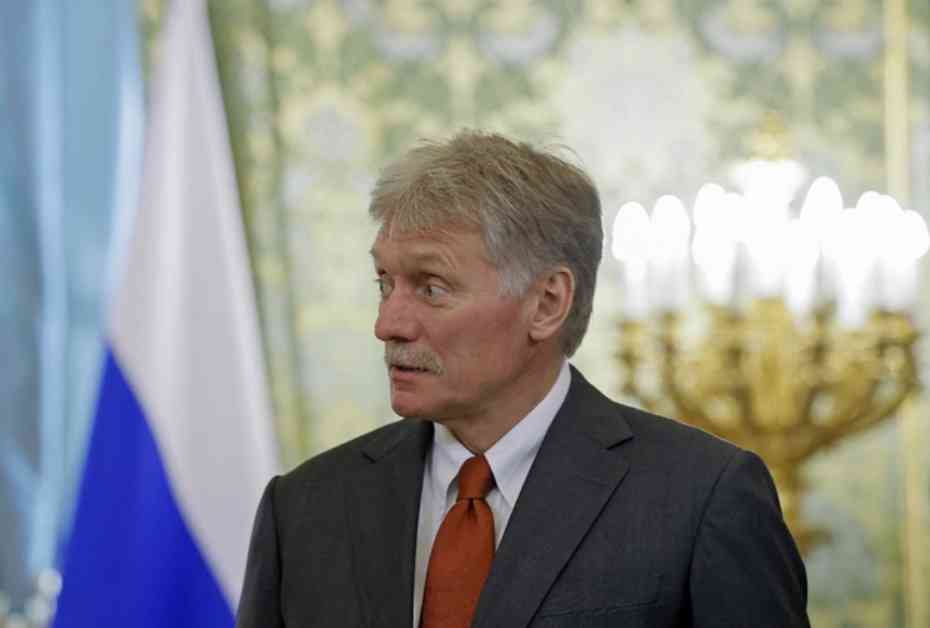The Kremlin’s Stance on Ukraine’s EU Membership
In a surprising turn of events, the Kremlin has publicly acknowledged Ukraine’s right to join the European Union. This significant statement came from Kremlin spokesperson Dmitry Peskov during a press briefing on Tuesday, Feb. 18. Peskov emphasized that the European Union is not a military alliance and, therefore, Ukraine’s EU membership is considered its “sovereign right.”
“This is the sovereign right of any country. No one can dictate such decisions, and we are not going to,” Peskov emphasized, as reported by TASS. The acknowledgment of Ukraine’s sovereignty in deciding its EU path marks a notable shift in Russia’s stance on the matter. However, Peskov made it clear that Russia’s perspective differs when it comes to military alliances like NATO, stating, “That’s a separate issue, and everyone knows our position on it.”
Ukraine’s Journey Towards EU Membership
The journey towards EU membership for Ukraine has been a complex and challenging one. The official application for EU accession was submitted by Ukraine on Feb. 28, 2022, setting the stage for a series of negotiations and discussions within the EU. Despite many European leaders expressing support for Ukraine’s bid, the process hit a roadblock on Dec. 14, 2023, when the EU Council agreed to commence membership talks, only to be halted by Hungary’s recent actions.
Hungary’s Obstruction and Demands
During the Munich Security Conference, Ukrainian Deputy Prime Minister for European Integration Olga Stefanyshyna revealed that Hungary had obstructed further progress in Ukraine’s EU membership process. Stefanyshyna highlighted this issue during a Ukrainian lunch at the conference, stating, “While we are talking here, one member state is blocking Ukraine’s accession process to the EU – it happened just yesterday.”
Hungary has set additional conditions for Ukraine to meet before negotiations can proceed. Typically, the EU accession process involves two key roadmaps focusing on the rule of law, human rights, and public administration reform. However, Hungary has introduced a third requirement related to the protection of national minorities, stalling Ukraine’s progress towards EU membership.
Russia’s Historical Opposition
Moscow’s opposition to Ukraine’s EU aspirations dates back to 2014, following the annexation of Crimea and the support of armed pro-Russian separatists in Eastern Ukraine. These actions were triggered by a pro-EU revolution that ousted Ukraine’s Moscow-aligned leader, Viktor Yanukovych. The decision by Yanukovych to forego an EU association agreement in favor of joining the Kremlin’s Customs Union sparked the Maidan Revolution, ultimately leading to his exile in Russia.
Looking Ahead
As Ukraine’s EU membership discussions remain at an impasse due to Hungary’s demands, the future of the negotiation process remains uncertain. Until the issue of national minority protection is resolved, progress towards EU membership will be on hold, leaving the timeline for Ukraine’s accession in question.
In conclusion, the acknowledgment of Ukraine’s right to join the EU by the Kremlin adds a new layer of complexity to the ongoing discussions surrounding Ukraine’s European integration. With key players like Hungary introducing additional conditions and Russia’s historical opposition looming in the background, the path towards EU membership for Ukraine remains fraught with challenges and uncertainties. As the world watches closely, the outcome of these negotiations will undoubtedly shape the future of Ukraine’s geopolitical landscape.

















